
Tours: The Heart of the Loire Valley
Tours, nestled in the heart of the picturesque Loire Valley, is a city brimming with history and charm. Known for its stunning architecture, lively markets, and vibrant cultural scene, Tours offers a unique blend of old-world elegance and modern-day vibrancy. The city's rich past is evident in its well-preserved medieval buildings, grand chateaux, and the impressive Gothic Cathedral of Saint-Gatien. Strolling through the historic district, you'll find narrow cobblestone streets lined with half-timbered houses, quaint cafes, and boutique shops. The city is also a culinary delight, with an abundance of local markets, gourmet restaurants, and wine bars. As a hub of the Loire Valley, Tours is surrounded by some of France's most renowned vineyards and chateaux, making it an ideal base for exploring the region's wine country and architectural wonders. Don't miss the vibrant Place Plumereau, a bustling square filled with cafes and restaurants, perfect for people-watching and soaking in the local atmosphere. Tours is not just about history and food; it is also a city of art and culture. The Musée des Beaux-Arts, housed in a historic palace, boasts an impressive collection of European paintings and art pieces. For those who love the outdoors, the city's parks and the nearby Loire River offer plenty of opportunities for leisurely walks, cycling, and boating. Whether you are a history buff, a foodie, or an art lover, Tours has something to enchant every visitor.
Local tips in Tours
- Visit the local markets early in the morning to experience the freshest produce and local specialties.
- Consider renting a bike to explore the scenic Loire Valley and its chateaux at your own pace.
- Join a guided wine tour to fully appreciate the region's renowned wines and vineyards.
- Take a leisurely stroll along the banks of the Loire River, especially during sunset for stunning views.
- Learn a few basic French phrases; locals appreciate the effort and it enhances your experience.
Neighbourhoods in Tours
Tours: The Heart of the Loire Valley
Tours, nestled in the heart of the picturesque Loire Valley, is a city brimming with history and charm. Known for its stunning architecture, lively markets, and vibrant cultural scene, Tours offers a unique blend of old-world elegance and modern-day vibrancy. The city's rich past is evident in its well-preserved medieval buildings, grand chateaux, and the impressive Gothic Cathedral of Saint-Gatien. Strolling through the historic district, you'll find narrow cobblestone streets lined with half-timbered houses, quaint cafes, and boutique shops. The city is also a culinary delight, with an abundance of local markets, gourmet restaurants, and wine bars. As a hub of the Loire Valley, Tours is surrounded by some of France's most renowned vineyards and chateaux, making it an ideal base for exploring the region's wine country and architectural wonders. Don't miss the vibrant Place Plumereau, a bustling square filled with cafes and restaurants, perfect for people-watching and soaking in the local atmosphere. Tours is not just about history and food; it is also a city of art and culture. The Musée des Beaux-Arts, housed in a historic palace, boasts an impressive collection of European paintings and art pieces. For those who love the outdoors, the city's parks and the nearby Loire River offer plenty of opportunities for leisurely walks, cycling, and boating. Whether you are a history buff, a foodie, or an art lover, Tours has something to enchant every visitor.
When is the best time to go to Tours?
Iconic landmarks you can’t miss
Cathédrale Saint-Gatien
Explore the breathtaking Cathédrale Saint-Gatien in Tours, a masterpiece of Gothic architecture with stunning stained glass and rich history.
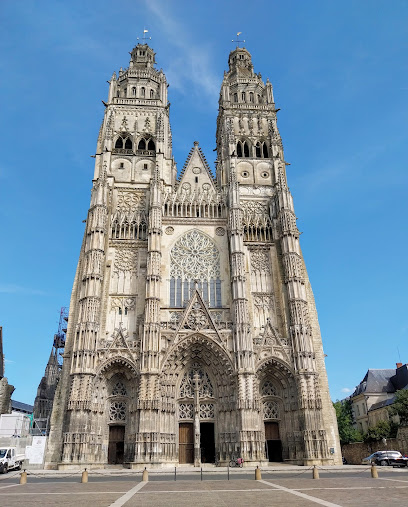
Les Halles de Tours
Discover the vibrant Les Halles de Tours, a bustling market offering fresh local produce, artisan goods, and a taste of the Loire Valley's culinary delights.
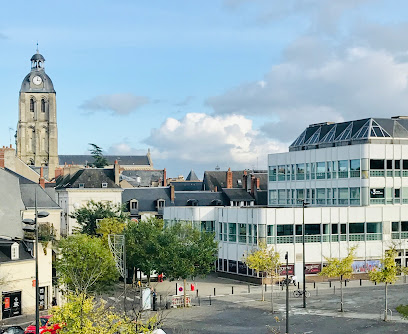
Guinguette de Tours
Discover Guinguette de Tours: A vibrant live music bar and eatery that celebrates local culture through music, food, and unforgettable experiences.
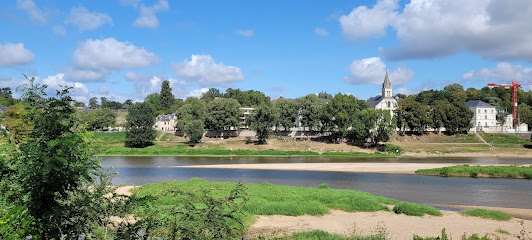
Vieux Tours
Explore the enchanting Vieux Tours, a historical landmark in France, where medieval charm meets vibrant culture and local delights.
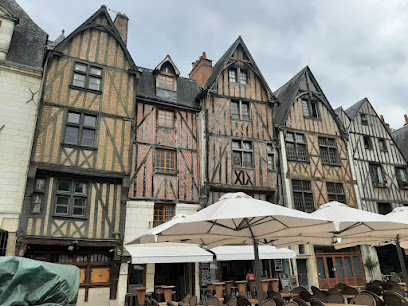
Prébendes d'Oé Garden
Discover the tranquil beauty of Prébendes d'Oé Garden in Tours, a perfect escape with stunning landscapes, serene ponds, and vibrant floral displays.
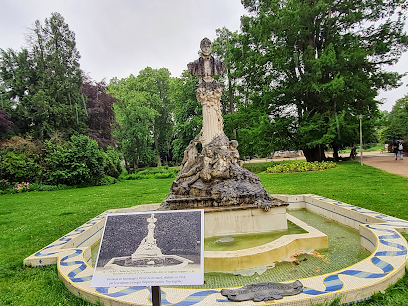
Basilique Saint-Martin de Tours
Discover the spiritual and architectural beauty of Basilique Saint-Martin de Tours, a key highlight for tourists exploring the rich heritage of France.
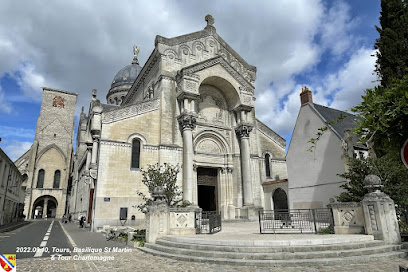
Vinci - International Congress Center
Experience the fusion of culture and innovation at Vinci International Congress Center in Tours, a must-see for every traveler.
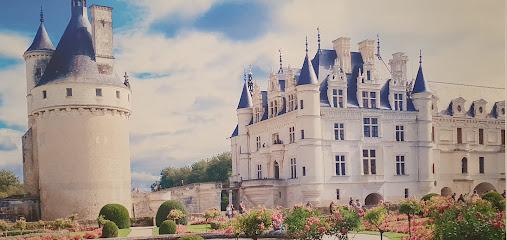
Musée du Compagnonnage
Discover the rich heritage of craftsmanship at Musée du Compagnonnage in Tours, where history and artistry converge in a captivating museum experience.
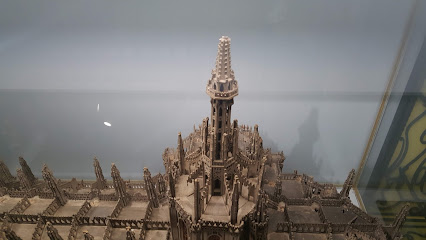
Museum of Fine Arts
Explore the Museum of Fine Arts in Tours, where centuries of artistic heritage await in a stunning architectural setting.
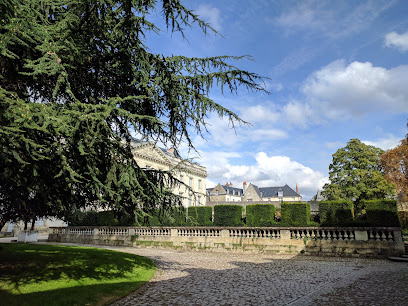
Château de Tours
Discover the rich history and vibrant culture of Tours at the stunning Château de Tours, a captivating castle and art center that beckons exploration.
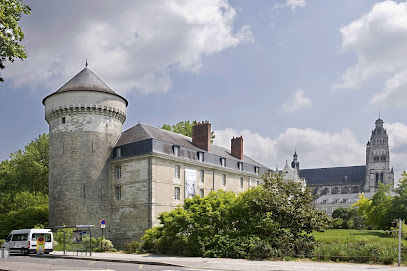
Tourist Office Tours Loire Valley
Explore the enchanting Loire Valley from the heart of Tours at the Tourist Office, your essential guide to local attractions, culture, and experiences.
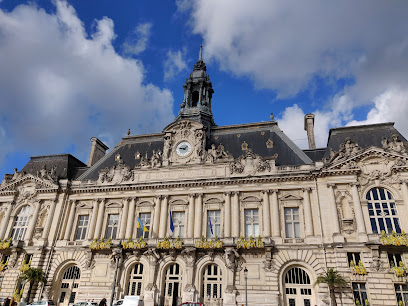
Grand Théâtre - Opéra De Tours
Explore the grandeur of The Grand Théâtre - Opéra De Tours, a cultural landmark showcasing stunning performances and rich artistic heritage.
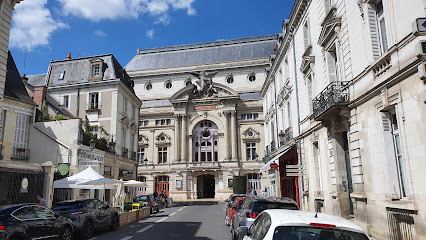
Escape Yourself
Discover the thrill of problem-solving and teamwork at Escape Yourself, Tours' leading escape room center, perfect for families and friends alike.
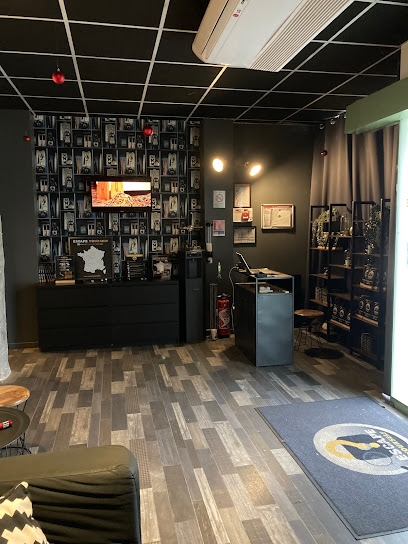
Comédie de Tours
Delve into the enchanting world of performing arts at Comédie de Tours, a cultural gem in the heart of Tours, France, offering captivating shows year-round.
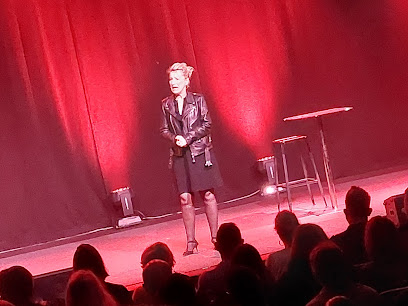
Abbaye de Saint-Julien
Explore the architectural beauty and spiritual serenity of the Abbey of Saint-Julien in Tours, a captivating Catholic church and tourist attraction.
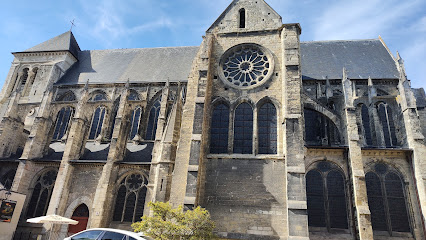
Unmissable attractions to see
Château de Chenonceau
Discover the elegance and history of Château de Chenonceau, the 'Ladies' Château' gracefully spanning the River Cher in the Loire Valley.
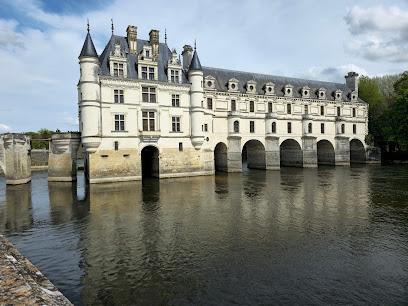
Château Royal d'Amboise
Discover royal history and Renaissance splendor at the Château Royal d'Amboise, a majestic castle overlooking the Loire Valley.
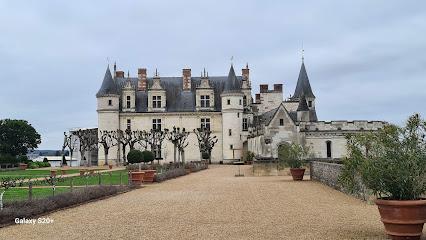
Château du Clos Lucé
Explore Leonardo da Vinci's last residence, Château du Clos Lucé, in Amboise, and discover his life, inventions, and legacy in the Loire Valley.
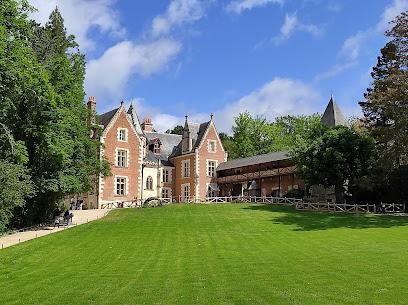
Château de Villandry
Discover Château de Villandry, the last Renaissance château in the Loire Valley, famed for its stunning gardens and rich history. A must-see destination!
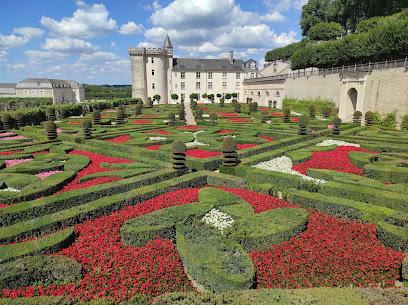
Château d'Azay-le-Rideau
Discover the Château d'Azay-le-Rideau: A Renaissance masterpiece in the Loire Valley, reflecting history and beauty on the Indre River.
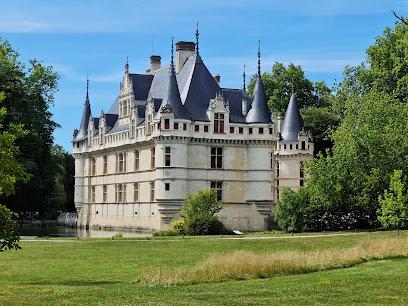
Forteresse Royale de Chinon
Explore the Royal Fortress of Chinon, a medieval castle with centuries of history, royal connections, and stunning views of the Loire Valley.
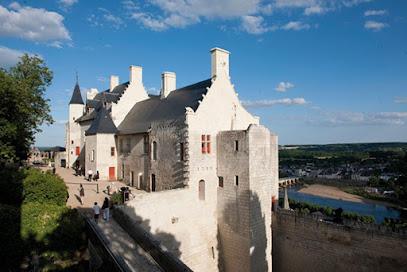
Château de Langeais
Discover a Loire Valley gem where medieval might meets Renaissance elegance, offering a glimpse into French history and architectural evolution.
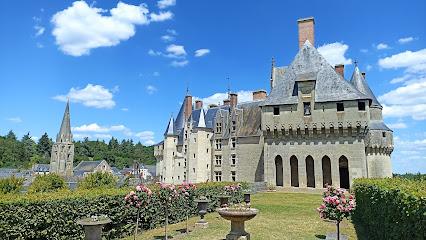
Cathédrale Saint-Gatien
Explore the Cathédrale Saint-Gatien in Tours, a stunning Gothic masterpiece showcasing centuries of architectural and artistic evolution.
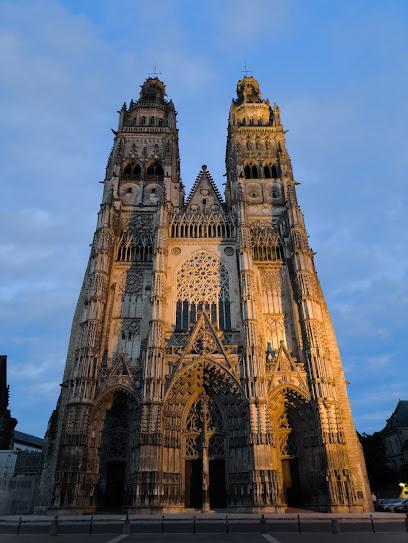
Jardin botanique de Tours
Discover a historic botanical garden in Tours with diverse plant collections, animal exhibits, and themed gardens for a relaxing escape.
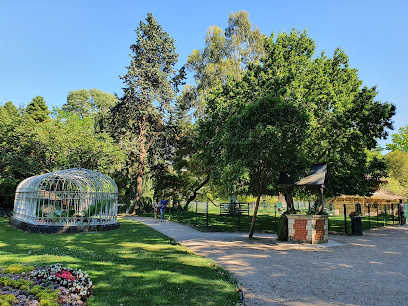
Domaine de Chaumont-sur-Loire
Discover a Loire Valley gem where historic architecture meets innovative gardens and contemporary art.
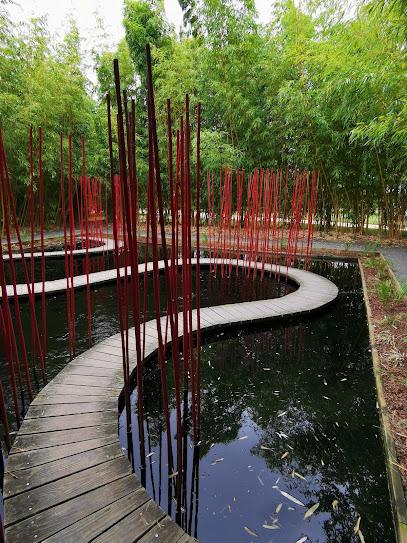
Château du Rivau
Discover a fairytale castle in the Loire Valley with stunning gardens, art, and history at Château du Rivau.
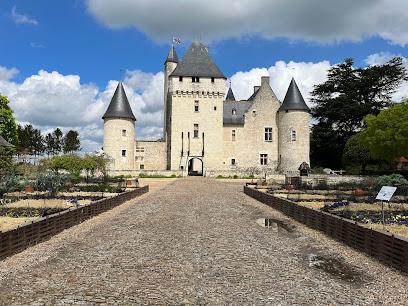
Prébendes d'Oé Garden
Discover a serene 19th-century garden in Tours, designed by the Bühler brothers, featuring diverse flora, winding paths, and tranquil water features.
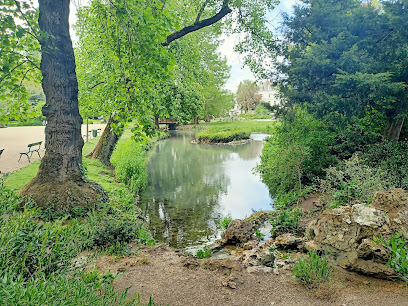
Basilique Saint-Martin de Tours
Discover the Basilique Saint-Martin in Tours, a stunning Neo-Byzantine basilica and a major pilgrimage site dedicated to St. Martin.
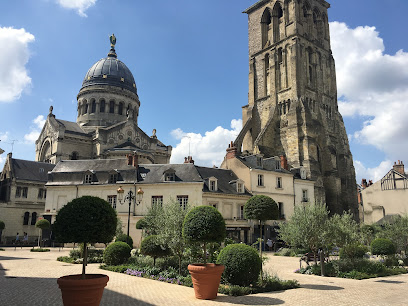
Château Gaillard
Discover the royal paradise of Château Gaillard in Amboise, where Renaissance gardens and citrus scents tell a story of French history.
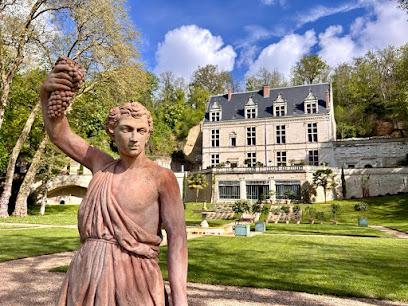
Musée du Compagnonnage
Discover the unique heritage of French craft guilds at the Musée du Compagnonnage in Tours, showcasing centuries of craftsmanship and tradition.
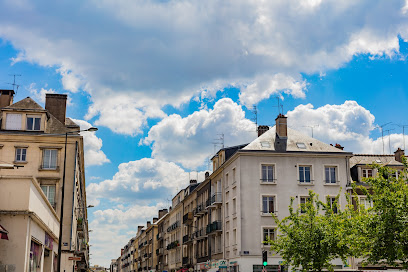
Essential places to dine
Le Turon
Experience the elegance of modern European dining at Le Turon in Tours, where every dish tells a story of French culinary artistry.
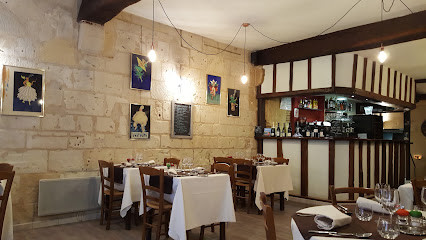
LA MAISON DES HALLES
Experience authentic French cuisine at La Maison des Halles in Tours—where tradition meets modern dining excellence.
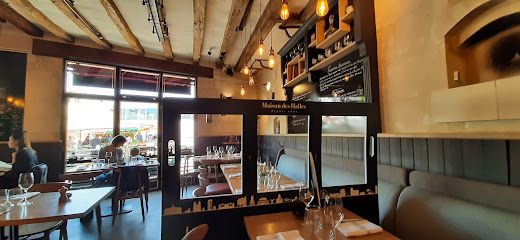
Restaurant Les Canailles
Experience authentic French cuisine at Restaurant Les Canailles in Tours - where culinary excellence meets charming ambiance.
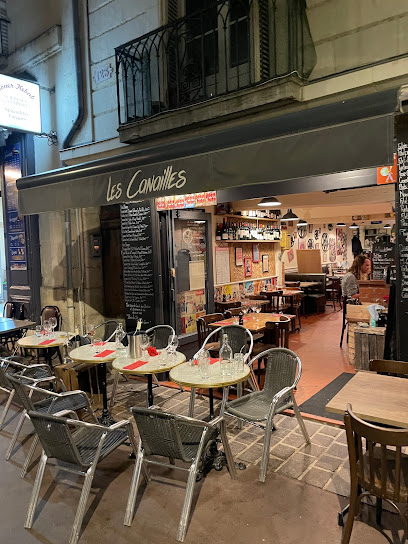
La Plume Blanche
Discover authentic French cuisine at La Plume Blanche in Tours - where every dish tells a story.
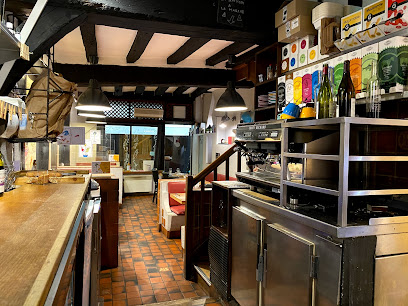
LA DEUVALIERE
Discover the best of French cuisine at La Deuvalière - where fine dining meets delightful pastries in the heart of Tours.
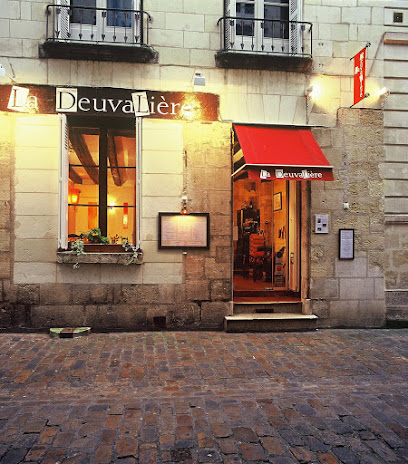
Au Lapin Qui Fume
Experience authentic French cuisine at Au Lapin Qui Fume in Tours - a charming bistro offering classic dishes and fine wines.
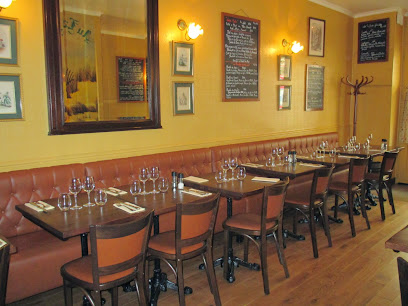
Le Laurenty
Experience authentic French cuisine at Le Laurenty in Tours – where tradition meets flavor in a charming setting.
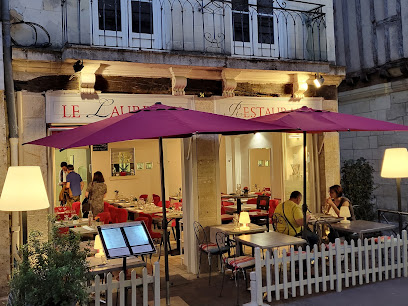
Le Chien Jaune
Experience the essence of traditional French bistro culture at Le Chien Jaune in Tours – where every meal tells a story.
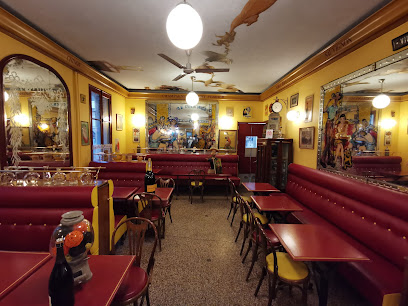
L'Etable
Experience authentic French cuisine at L'Etable in Tours – where tradition meets culinary artistry in a charming atmosphere.
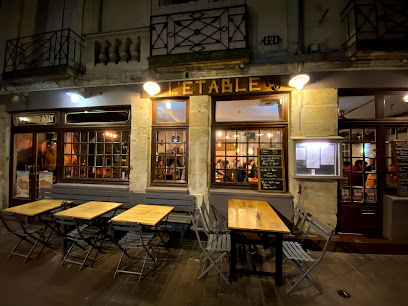
Restaurant les Pierres Fondues à Tours
Experience authentic French cuisine at Restaurant les Pierres Fondues in Tours, renowned for its exquisite fondue and charming atmosphere.
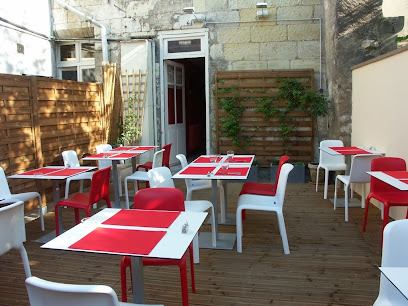
Le Chien Fou
Savor exquisite French cuisine at Le Chien Fou in Tours - where local flavors meet modern culinary artistry.
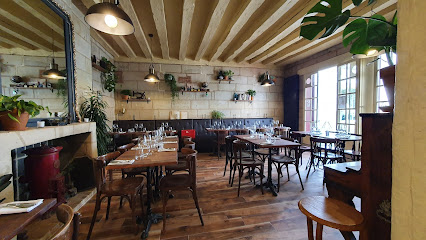
Le Baccara
Experience the best of French cuisine at Le Baccara in Tours - where tradition meets innovation in every bite.
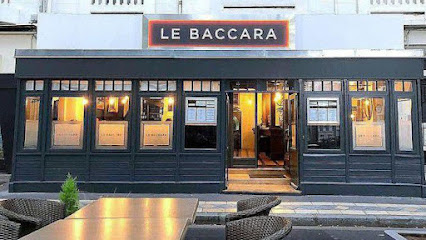
Case.
Experience haute French cuisine at Case in Tours - where traditional flavors meet modern culinary artistry.
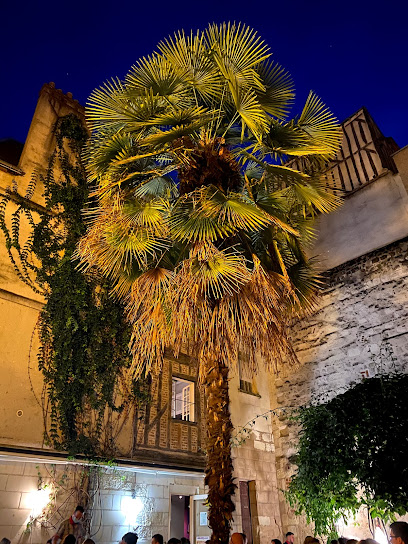
L accalmie
Experience exquisite haute French cuisine at L'Accalmie in Tours—where culinary artistry meets elegant dining.
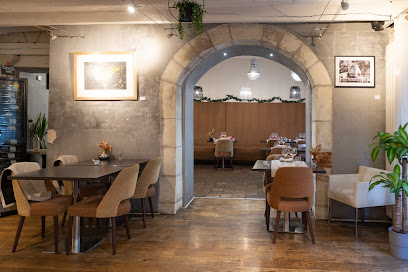
Restaurant LE BISTROT DES BELLES CAVES
Experience authentic French cuisine at Le Bistrot des Belles Caves in Tours – where culinary tradition meets modern flair.
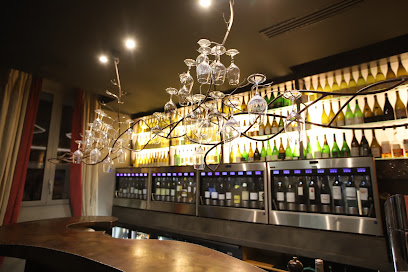
Markets, malls and hidden boutiques
L'Heure Tranquille
Experience the vibrant shopping and dining at L'Heure Tranquille, the heart of Tours, where fashion meets entertainment and culinary delights await.
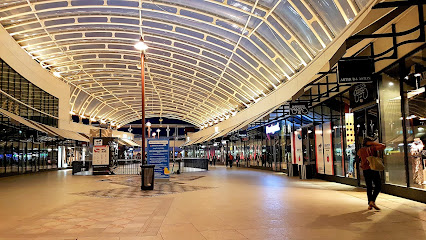
Galeries Lafayette Tours
Discover a world of fashion and beauty at Galeries Lafayette Tours, the ultimate shopping destination in the heart of France.
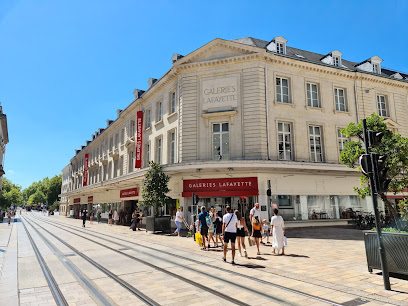
Galerie Nationale
Explore the chic shops, tech stores, and dining delights at Galerie Nationale in Tours, a must-visit shopping destination.
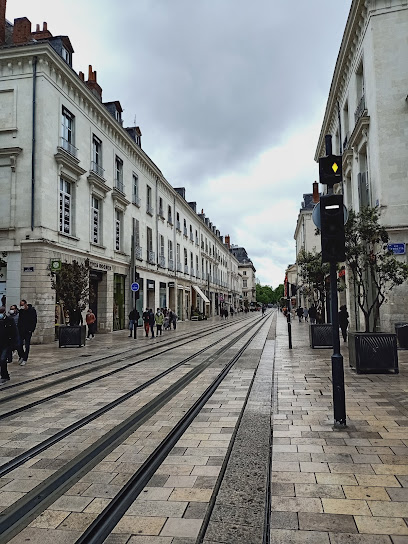
Nature and Discoveries
Explore the charm of Nature and Discoveries in Tours, a gift shop offering eco-friendly treasures inspired by the beauty of nature.
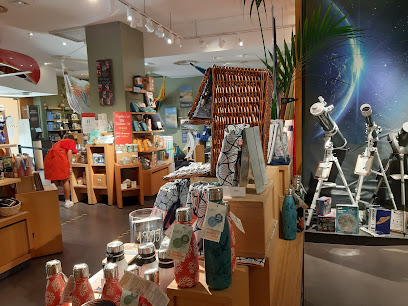
PASSAGE DU PALAIS
Explore the vibrant Passage du Palais in Tours, where shopping meets culture in a stunning architectural setting.
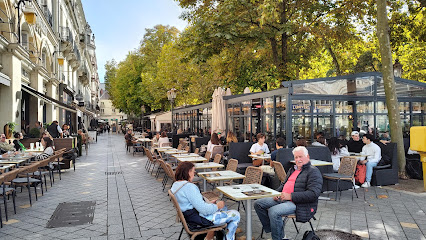
Printemps Tours
Shop at Printemps Tours, where fashion meets elegance in a vibrant atmosphere filled with diverse boutiques and quality selections.
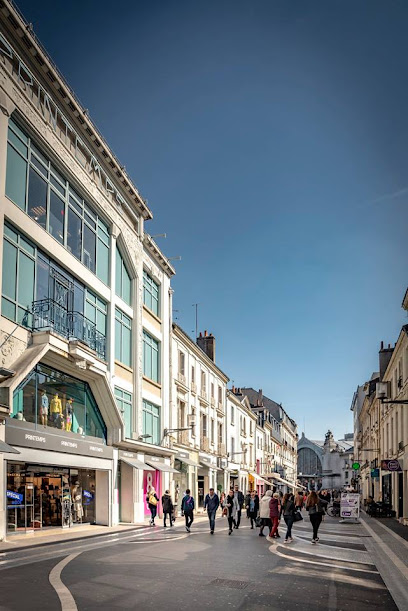
Paris Store Tours
Discover a vibrant Asian grocery store in Tours, France, offering a wide selection of authentic products and a taste of Asian culinary delights.
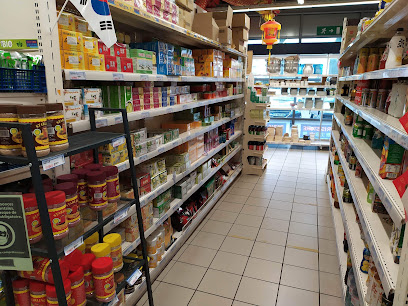
LUSH Cosmetics Tours
Explore LUSH Cosmetics in Tours for an enchanting experience of handmade beauty products that celebrate sustainability and creativity.
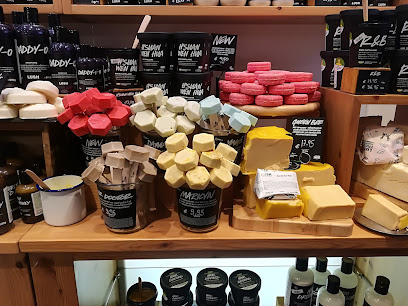
Bershka
Explore Bershka in Tours for the latest trends in men's and women's fashion, from stylish shoes to trendy accessories, all under one roof.
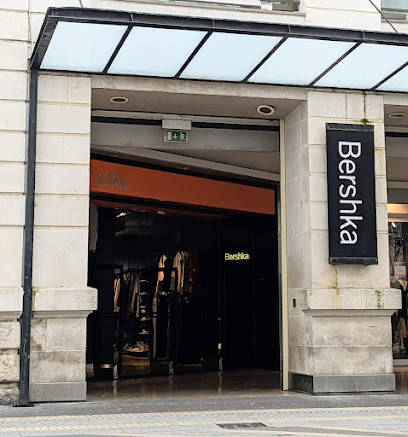
FRED ASTON
Explore FRED ASTON in Tours for a unique blend of men's and women's fashion, showcasing contemporary styles and timeless elegance.
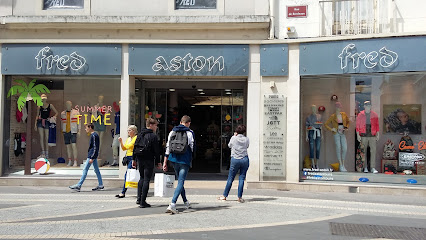
PYLONES
Discover the whimsical world of Pylones in Tours, where unique gifts and vibrant designs meet to create unforgettable shopping experiences.
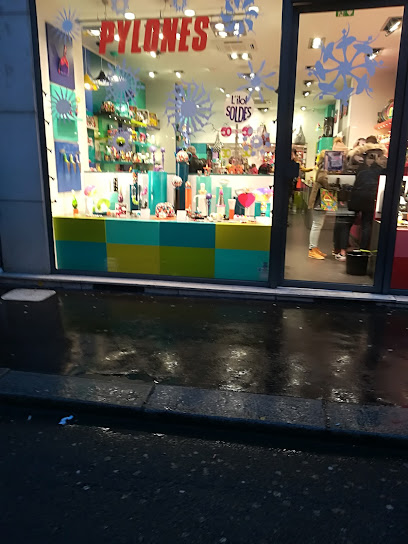
Louis Pion Tours
Discover timeless elegance at Louis Pion Tours, your go-to gift shop for exquisite timepieces and fashionable accessories in the heart of Tours.
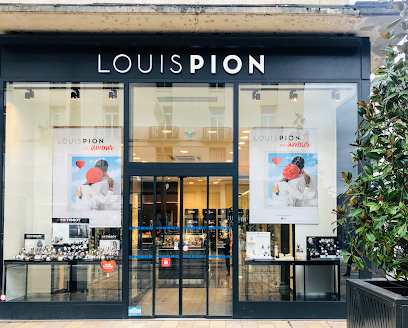
Le Comptoir Irlandais Tours
Explore the essence of Ireland at Le Comptoir Irlandais Tours, your one-stop shop for authentic Irish goods, gourmet delights, and unique gifts.
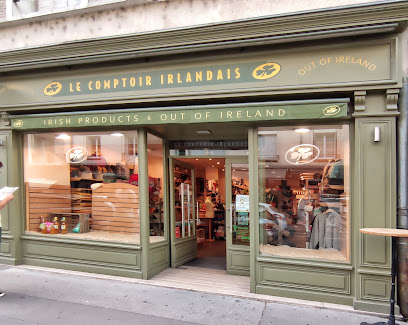
Kilo Shop Kawaii Tours
Explore the charm of sustainable fashion at Kilo Shop Kawaii Tours, where vintage meets contemporary style in a delightful shopping experience.
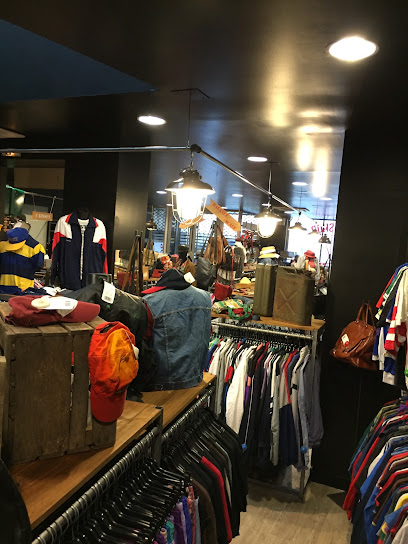
Shop Vintage
Explore unique vintage clothing and sustainable fashion treasures at Shop Vintage in Tours, the ultimate destination for style enthusiasts.
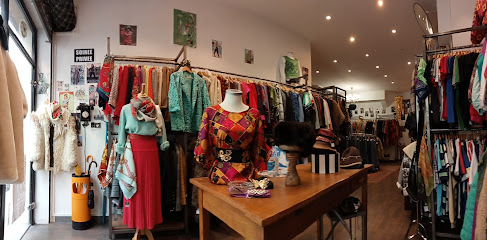
Essential bars & hidden hideouts
Bar Le Corsaire
Discover Bar Le Corsaire in Tours: A Nautical-Themed Bar Offering Vibrant Nightlife and a Diverse Drink Menu.
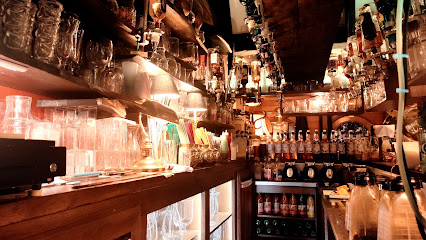
The Pale
Experience the vibrant charm of The Pale, a beloved Irish pub in Tours, offering great drinks, delicious food, and a lively atmosphere.
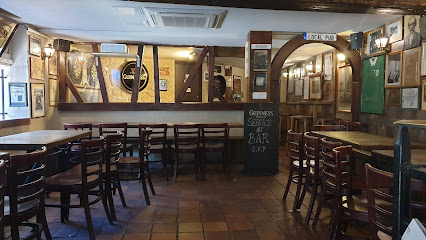
Café Bar concerts Le Strapontin
Discover the heart of Tours at Café Bar concerts Le Strapontin, where jazz meets delicious bites in a vibrant atmosphere.
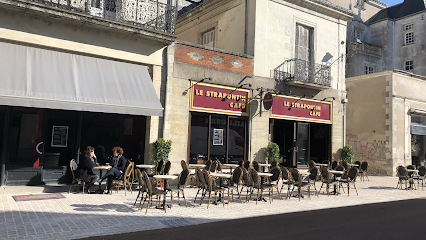
MC Cool's
Discover the lively atmosphere of MC Cool's, a premier bar in Tours, France, offering exquisite drinks and a memorable experience for all visitors.
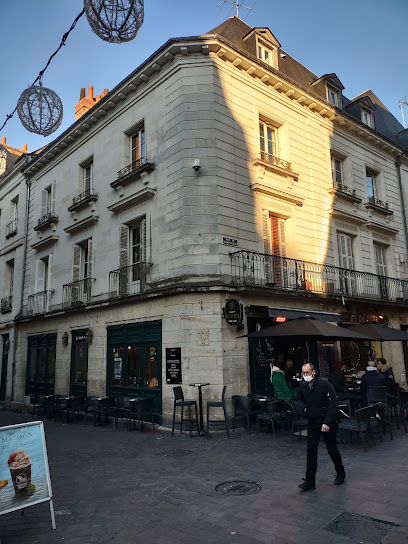
Le Gambrinus - Bar à biere - Cave à biere - Beer Garden
Discover the vibrant beer culture of Tours at Le Gambrinus, a premier beer hall offering a wide selection of brews and delicious bites.
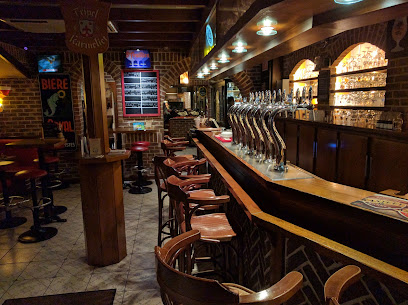
La Cabane
Discover La Cabane in Tours for a cozy bar experience with affordable drinks and a friendly atmosphere, perfect for unwinding after a day of exploration.
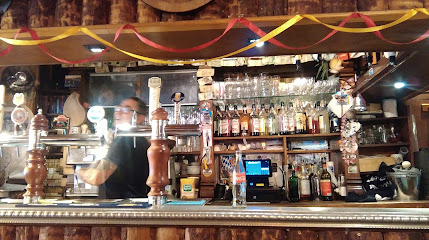
The Three Kings
Discover The Three Kings Bar in Tours: A lively bar offering a perfect blend of local charm, delicious drinks, and a vibrant atmosphere for all visitors.
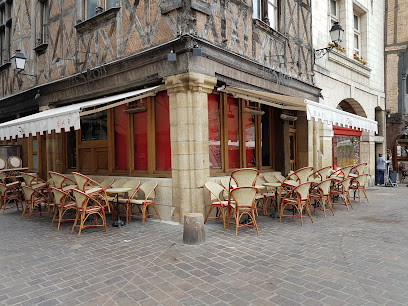
Oxford Pub
Experience the vibrant nightlife of Tours at Oxford Pub, where every visit promises great drinks and even better company.
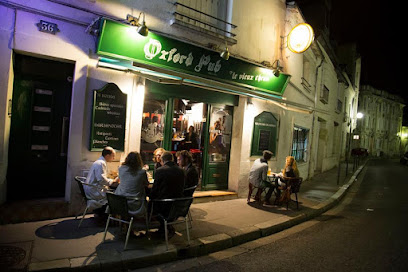
Le Tournesol
Discover the vibrant cocktail culture at Le Tournesol in Tours, where creative drinks and lively atmosphere come together for an unforgettable night.
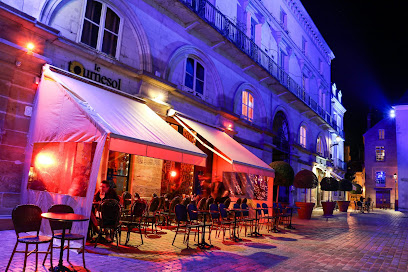
pub puzzle
Discover the vibrant Bar Puzzle in Tours, a unique pub with a lively atmosphere, great drinks, and fun games for an unforgettable experience.
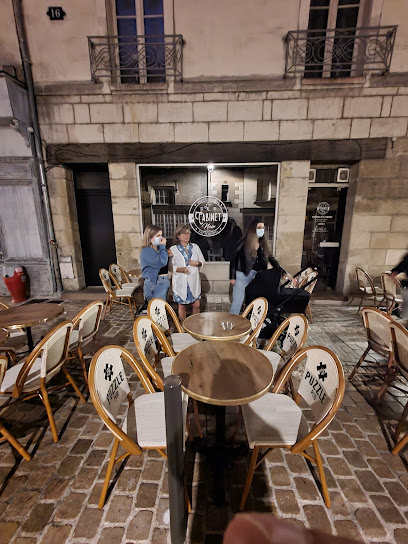
The Winchester
Experience the vibrant nightlife at The Winchester in Tours, where exquisite cocktails and an electrifying dance floor await you!
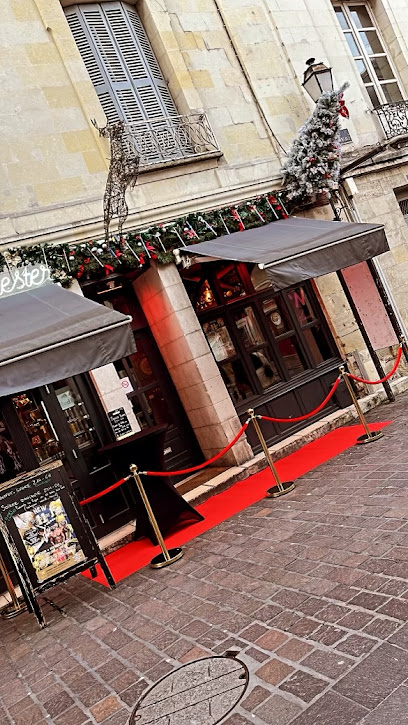
Bar the Hammock
Discover the vibrant Bar the Hammock in Tours, where cocktails, live music, and a welcoming ambiance come together for an unforgettable night out.
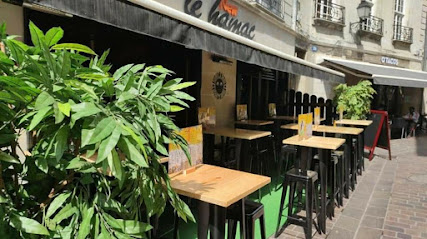
Le P Tit Soleil
Discover the lively atmosphere and delightful drinks at Le P Tit Soleil, a must-visit bar in the heart of Tours, France.
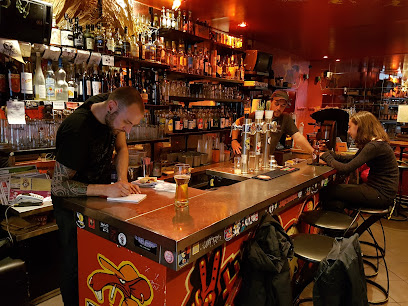
Le Serpent Volant
Discover the vibrant atmosphere of Le Serpent Volant in Tours, where exquisite dining meets lively nightlife in a charming setting.
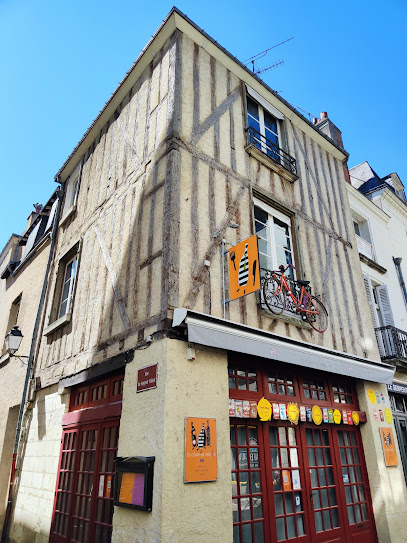
Travel experiences inspired by this city
Explore more travel diariesLocal Phrases
-
- HelloBonjour
[bon-zhoor] - GoodbyeAu revoir
[oh ruh-vwahr] - YesOui
[wee] - NoNon
[nohn] - Please/You're welcomeS'il vous plaît/De rien
[seel voo play/dee ryehn] - Thank youMerci
[mehr-see] - Excuse me/SorryExcusez-moi/Désolé
[ex-kew-zay mwah/day-zoh-lay] - How are you?Comment ça va?
[koh-mohn sah vah] - Fine. And you?Bien. Et vous?
[byen. ay voo] - Do you speak English?Parlez-vous anglais?
[par-lay voo ahn-glay] - I don't understandJe ne comprends pas
[zhuh nuh kohm-prahnd pah]
- HelloBonjour
-
- I'd like to see the menu, pleaseJe voudrais voir la carte, s'il vous plaît
[zhuh voo-dray vwar lah kart, seel voo play] - I don't eat meatJe ne mange pas de viande
[zhuh nuh mahnj pah duh vyand] - Cheers!Santé!
[sahn-tay] - I would like to pay, pleaseJe voudrais payer, s'il vous plaît
[zhuh voo-dray pay-ay, seel voo play]
- I'd like to see the menu, pleaseJe voudrais voir la carte, s'il vous plaît
-
- Help!À l'aide!
[ah layd] - Go away!Allez-vous en!
[al-lay voo zahn] - Call the Police!Appelez la police!
[ah-puh-lay lah po-lees] - Call a doctor!Appelez un médecin!
[ah-puh-lay uh med-sahn] - I'm lostJe suis perdu
[zhuh swee pair-doo] - I'm illJe suis malade
[zhuh swee mah-lahd]
- Help!À l'aide!
-
- I'd like to buy...Je voudrais acheter...
[zhuh voo-dray zah-shey...] - I'm just lookingJe regarde juste
[zhuh ruh-gard zheust] - How much is it?Combien ça coûte?
[kohn-byen sah koot] - That's too expensiveC'est trop cher
[say troh shair] - Can you lower the price?Pouvez-vous baisser le prix?
[poo-vez voo bay-say luh pree]
- I'd like to buy...Je voudrais acheter...
-
- What time is it?Quelle heure est-il?
[kell urr eh-teel] - It's one o'clockIl est une heure
[eel eh oon urr] - Half past (10)Dix heures et demie
[dees ehr ay duh-mee] - MorningMatin
[mah-tan] - AfternoonAprès-midi
[ah-pray mee-dee] - EveningSoir
[swahr] - YesterdayHier
[yair] - TodayAujourd'hui
[oh-zhoor-dwee] - TomorrowDemain
[duh-mahn] - 1Un
[uh] - 2Deux
[duh] - 3Trois
[twah] - 4Quatre
[ka-truh] - 5Cinq
[sank] - 6Six
[sees] - 7Sept
[set] - 8Huit
[weet] - 9Neuf
[nurf] - 10Dix
[dees]
- What time is it?Quelle heure est-il?
-
- Where's a/the...?Où est...?
[oo eh...] - What's the address?Quelle est l'adresse?
[kell eh lah-dress] - Can you show me (on the map)?Pouvez-vous me montrer (sur la carte)?
[poo-vez voo muh mohn-tray (surr lah kart)] - When's the next (bus)?Quand est le prochain (bus)?
[kahn eh luh proh-shan (buhs)] - A ticket (to ....)Un billet (pour ....)
[uhn bee-yay (poor)]
- Where's a/the...?Où est...?
History of Tours
-
Tours, known as Caesarodunum during the Roman era, was established in the 1st century AD. It served as an important administrative center in the Roman province of Gallia Lugdunensis. The city's Roman roots are evident in its layout and archaeological remains, including the remnants of a Roman amphitheater and baths.
-
During the medieval period, Tours became a major pilgrimage site due to the relics of St. Martin of Tours. The Basilica of St. Martin, built to honor the saint, attracted pilgrims from across Europe. The city's strategic location along the Loire River also contributed to its growth as a commercial hub.
-
In the 15th and 16th centuries, Tours flourished under the influence of the French Renaissance. The city became a favored residence for the French monarchy. Notable Renaissance structures include the Hôtel Goüin and the Château de Tours, showcasing the architectural grandeur of the period.
-
In 732 AD, the Battle of Tours marked a significant turning point in European history. Charles Martel's Frankish forces defeated the Umayyad Caliphate, halting the Muslim advance into Western Europe. This victory solidified Tours' place in military history and helped shape the continent's religious and cultural landscape.
-
In the 19th and 20th centuries, Tours underwent significant modernization. The arrival of the railway in the mid-19th century spurred economic growth and urban development. The city played a pivotal role during World War II, serving as a temporary capital of France in 1940 and later enduring occupation and liberation.
-
Today, Tours is renowned for its rich cultural heritage. The city is home to numerous museums, including the Musée des Beaux-Arts, which houses an impressive collection of art. The annual Festival de la Loire celebrates the region's maritime history, while the vibrant local markets and gastronomy reflect Tours' enduring cultural vitality.
Tours Essentials
-
Tours is located in the Loire Valley, approximately 240 kilometers southwest of Paris. The nearest major airport is Paris Charles de Gaulle (CDG), from which you can take a direct TGV (high-speed train) to Tours. The train journey typically takes about 1.5 hours. Alternatively, there is a smaller airport, Tours Val de Loire Airport (TUF), with limited flights from European destinations. If you prefer driving, Tours is accessible via the A10 motorway from Paris, a journey of roughly 2.5 hours.
-
Tours has an efficient public transportation system that includes buses and trams, operated by Fil Bleu. Tickets can be purchased at machines located at tram stops or directly from bus drivers. For exploring the city center, walking or renting a bicycle is highly recommended. Taxis are also readily available, and ridesharing services like Uber operate in the area. For trips outside of Tours, consider renting a car to explore the Loire Valley and its famous châteaux at your own pace.
-
The official currency in France is the Euro (€). Credit and debit cards are widely accepted in most hotels, restaurants, and shops. However, it's a good idea to carry some cash for smaller establishments, local markets, and rural areas. ATMs are plentiful in Tours, especially in the city center, where you can withdraw money as needed.
-
Tours is generally a safe city for tourists. However, like any urban area, it is wise to take standard precautions. Avoid leaving your belongings unattended and be cautious in crowded areas, such as train stations and popular tourist spots. While Tours does not have specific high-crime areas targeting tourists, neighborhoods like Les Fontaines and some parts of La Rabière have higher crime rates, so exercise additional caution if you visit these areas, especially at night.
-
In case of an emergency, dial 112 for immediate assistance, which is the European emergency number for police, fire, and medical services. The main hospital in Tours is CHRU de Tours, which provides comprehensive medical care. Pharmacies are widely available for minor health issues. It is advisable to have travel insurance that covers medical emergencies. For lost or stolen items, contact the local police station.
-
Fashion: Do dress smartly, especially when dining out or visiting upscale locations. Casual attire is acceptable, but avoid overly revealing clothing. Religion: Do respect local customs in religious sites. Always dress modestly and remain quiet. Public Transport: Do validate your ticket before boarding trams and buses. Don't eat or drink on public transport. Greetings: Do greet people with a polite 'Bonjour' (Good day) upon entering shops or restaurants. A handshake is a common form of greeting. Eating & Drinking: Do try local specialties like rillettes and Loire Valley wines. Don’t rush your meals; dining is considered a leisurely activity.
-
To experience Tours like a local, visit the Halles de Tours, the central market, where you can find fresh produce, meats, cheeses, and other local delicacies. Take a leisurely stroll along the Loire River and enjoy a picnic in one of the many parks. Engage with locals at the numerous wine bars and cafés scattered throughout the city. Don’t miss the weekly flea market at Place Anatole France for unique finds. For a cultural experience, attend a performance at the Grand Théâtre de Tours.
Trending Landmark in Tours
-
Cathédrale Saint-Gatien
-
Les Halles de Tours
-
Guinguette de Tours
-
Vieux Tours
-
Prébendes d'Oé Garden
-
Basilique Saint-Martin de Tours
-
Vinci - International Congress Center
-
Musée du Compagnonnage
-
Museum of Fine Arts
-
Château de Tours
-
Tourist Office Tours Loire Valley
-
Grand Théâtre - Opéra De Tours
-
Escape Yourself
-
Comédie de Tours
-
Abbaye de Saint-Julien
Nearby Cities to Tours
-
Things To Do in Angers
-
Things To Do in Nantes
-
Things To Do in Limoges
-
Things To Do in Versailles
-
Things To Do in Rennes
-
Things To Do in La Rochelle
-
Things To Do in Paris
-
Things To Do in Caen
-
Things To Do in Rouen
-
Things To Do in Saint-Malo
-
Things To Do in St. Clement
-
Things To Do in Gorey
-
Things To Do in St. Helier
-
Things To Do in Trinity
-
Things To Do in St. Aubin
























